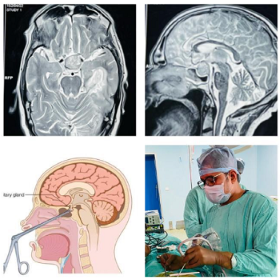Early antiplatelet medication linked to improved stroke recovery

Administering antiplatelet medication within 24 hours of mechanical thrombectomy, an effective procedure for stroke, may help patients more successfully recover and prevent high-risk individuals from experiencing additional strokes, according to a study presented today at the Society of NeuroInterventional Surgery's (SNIS) 20th Annual Meeting.
Administering antiplatelet medication within 24 hours of mechanical thrombectomy, an effective procedure for stroke, may help patients more successfully recover and prevent high-risk individuals from experiencing additional strokes, according to a study presented today at the Society of NeuroInterventional Surgery's (SNIS) 20th Annual Meeting.
Antiplatelet medication prevents blood clots from forming (and potentially causing strokes) by keeping platelets from sticking together. However, this medication can also potentially cause brain bleeding if administered soon after mechanical thrombectomy. To find a way to safely use this essential medication without causing additional risk to patients, researchers reviewed data from 190 patients who underwent this treatment between 2016–2020 and categorized patients by those who received antiplatelet medication less than 24 hours after surgery and those who received the medication later.
In their study, "Safety and Functional Outcomes with Early Initiation of Antiplatelet Therapy Following Mechanical Thrombectomy in Emergent Large Vessel Occlusion Strokes: A Single Institution Registry Study," researchers noted that patients who received antiplatelet medication within 24 hours of mechanical thrombectomy were significantly more physically independent at discharge from the hospital than patients who received the antiplatelet medication later. This difference was maintained longer-term as well, with patients who received early antiplatelet medication having much better physical functioning scores one month and three months after surgery. In addition, there was no sign that giving patients antiplatelet medication earlier led to increased risk of brain bleeding after surgery.
"Continuously working to improve patient outcomes is one of our top priorities," said Dr. Hepzibha Alexander, a neurosurgery resident at Ascension Providence Hospital in Southfield, Michigan, and lead author in the study. "Finding a new way to safely use this already-essential medication is an exciting step forward in helping patients thrive after stroke."
Book an AppointmentWhat Our Patients Say
Aliquam a augue suscipit, luctus neque purus ipsum neque dolor primis libero at tempus, blandit posuere ligula varius congue cursus porta feugiat


“Dr.Gourav jatav sir is really good doctor by profession , knowledge and experience. He is very friendly and polite. Always give best opinion and treatment without caring about money.”


“Dr.Gourav jatav sir is really good doctor by profession , knowledge and experience. He is very friendly and polite. Always give best opinion and treatment without caring about money.”


“Got best suggestions got relief spine problem without surgery within a 15 days of time I was suffering from last 3 years
Thanku doctor”


“Very polite, humble, listen to complains patiently and best is he advise surgery only when required.
Less tablets to eat.”


“Dr.gorav sir is the best me abhari hu aapka jo aapne mujhe nai jindgi di aap ka ahshan kabhi nahi bhul sakta har mahine aapse milne aana mera kartvya he aapke per chhune jarur aaunga sir bahut bahut dhanyawad aapka dil se sir”


“Best Surgeon , Thank you very much Dr. Gourav. Papa is is almost fine . On only 8% expectation you did it to save him. We are very thankful of you. May god always bless you Dr. And you are also not less than a god.”